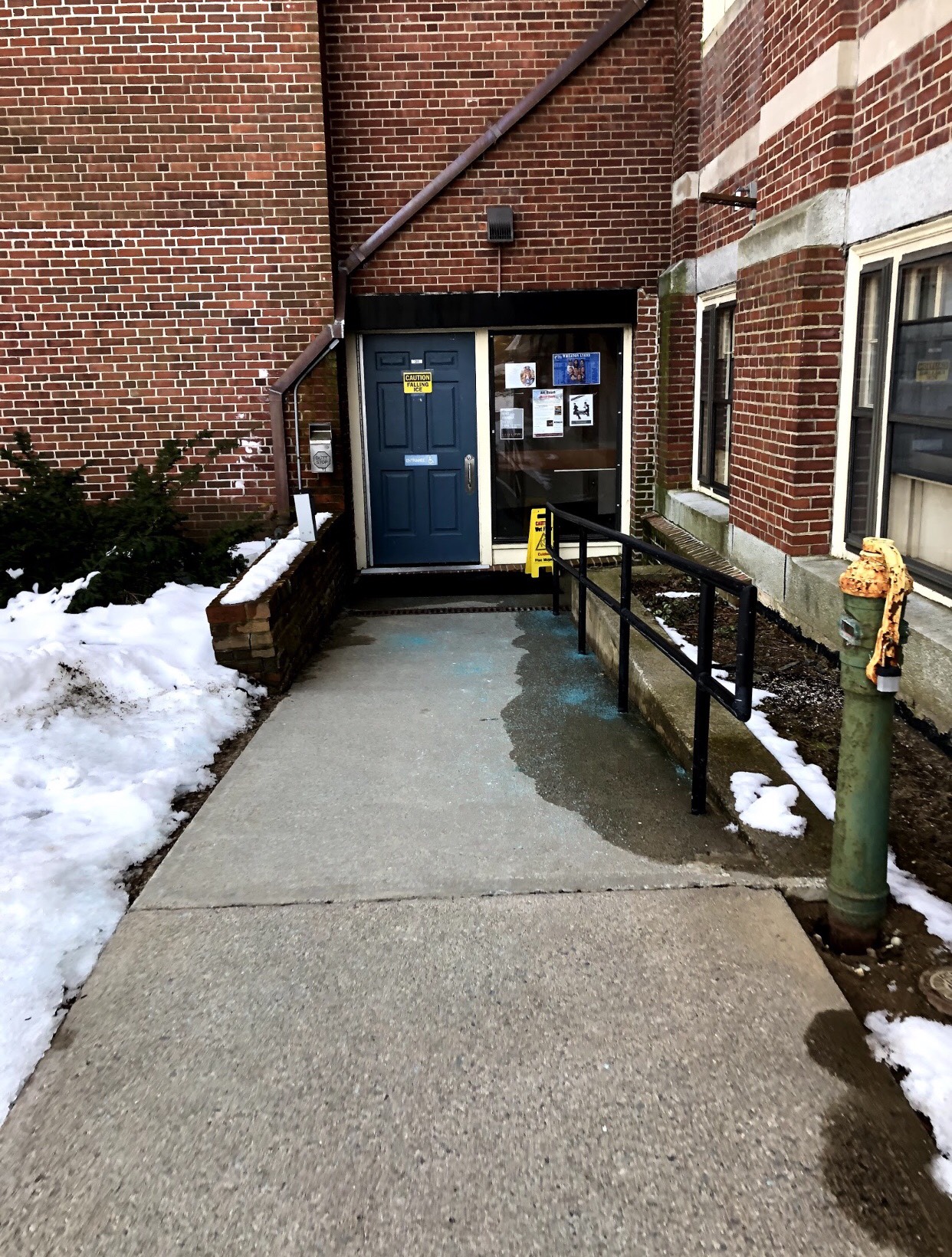WheAccess calls upon Wheaton College students for support of the club’s mission to improve accessibility across campus. The club is currently working with the campus administration to improve the many flaws in the infrastructure of the college.

According to the accessibility coordinator on campus, Autumn Grant, Wheaton College follows regulations put in place by the Americans with Disabilities Act (ADA) standards for accessible design. Though the campus has made many improvements to the accessibility on campus in recent years, there are many more enhancements that can be made in the future. “It’s not impossible to study here with a disability, but there are so many things that are limiting, it makes it almost not worth the extra effort we have to go through to study here,” said Rachel Guerriero ’20.
After exploring the Wheaton campus, one could point out many potential improvements that could be made to enable the accessibility of important locations on campus. Both Balfour and Knapton have faulty elevators and Knapton Lecture Hall is not accessible because of the three steps leading down into the classroom and the inability a wheelchair has of moving around if entering from the back. Though it is not accessible to wheelchairs, clubs still host movie showings in Knapton Lecture Hall, therefore not giving everyone the opportunity to attend. Park Hall, which is home to the Dean of Students, Provost, and the location of the President’s office, is also not accessible.

Admissions should be an accessible place for all students because it is important in forming a connection between current students and prospective students. Unfortunately, there are only steps leading into the admissions office, which prevents any students who are not able to ascend steps from being able to enter the office. During the winter, the walkways on the campus can become covered with ice, creating a serious safety hazard and especially affecting students who use transport aids such as wheelchairs and crutches. Adding a few more lights on campus would improve the safety of the students during the night. It can appear even too dark to navigate during later hours. “Some of the paths on campus are also not smoothly paved over and it is a safety hazard,” said Aubrie Galinis ’22.
Another accessibility challenge that the campus must face is being autism-friendly. An autism-friendly campus should include quiet spaces to which people may retreat when they need to get away from noise, campus signage to aid navigation in a visual way, and training for Professors to help them understand how people with autism process information. “It is important to understand that those barriers that are not taken away could be what is preventing some students from getting an education,” said Grant.
There are places on campus that may not always appear autism-friendly. Though Chase Dining Hall can seem to be unfriendly to students on the autism spectrum because of how noisy and crowded it can be, there is a small room in Chase that is available for students to have a quiet space to enjoy their meals. However, the room is not always open because it can be reserved for special events.
Emotional support animals don’t fall directly under the ADA housing act and therefore do not have the same regulations as service animals. Service animals have gone through specific training and perform a certain task, and consequently are allowed to access classrooms, dining halls, and other spaces. There is a lack of education on the rules about having a support animal and an emotional support animal on campus. Past campus surveys show a lack of knowledge on this subject and also on the subject of accessibility as a whole.
When asked how the campus can improve its accessibility, Grant said: “it is important that as a community, we take the extra step to support the access.” In order to improve awareness of access on the campus, students are encouraged to engage in the community in all aspects, which includes using the automatic door openers once in a while to make sure they work. This is so that in the case of a malfunction, students can report it. “When you talk about accessibility, people tend to think about only physical access, but the importance also lies in communication,” said Grant. Students can teach each other to understand how to achieve optimum accessibility for everyone.
The WheAccess club is excited to announce their upcoming event during the week of March 25-29. The event, celebrating Accessibility Week, will host a film showing of “95 Decibels,” co-host a guest speaker with the Win Hub, and collaborate with the Base. WheAccess is also hoping to plan more collaborations in the future with many clubs who are looking to learning more about the importance and strategy of improving accessibility during student-hosted events on campus.